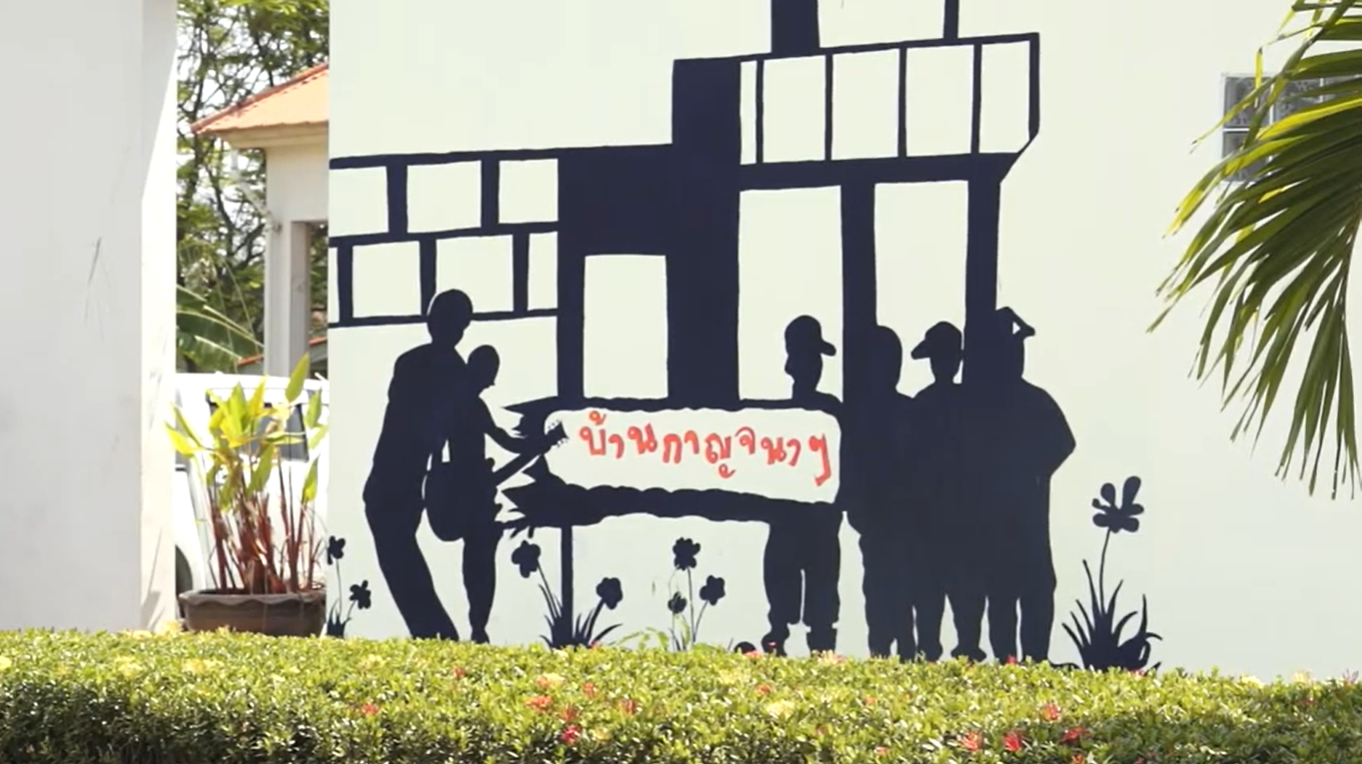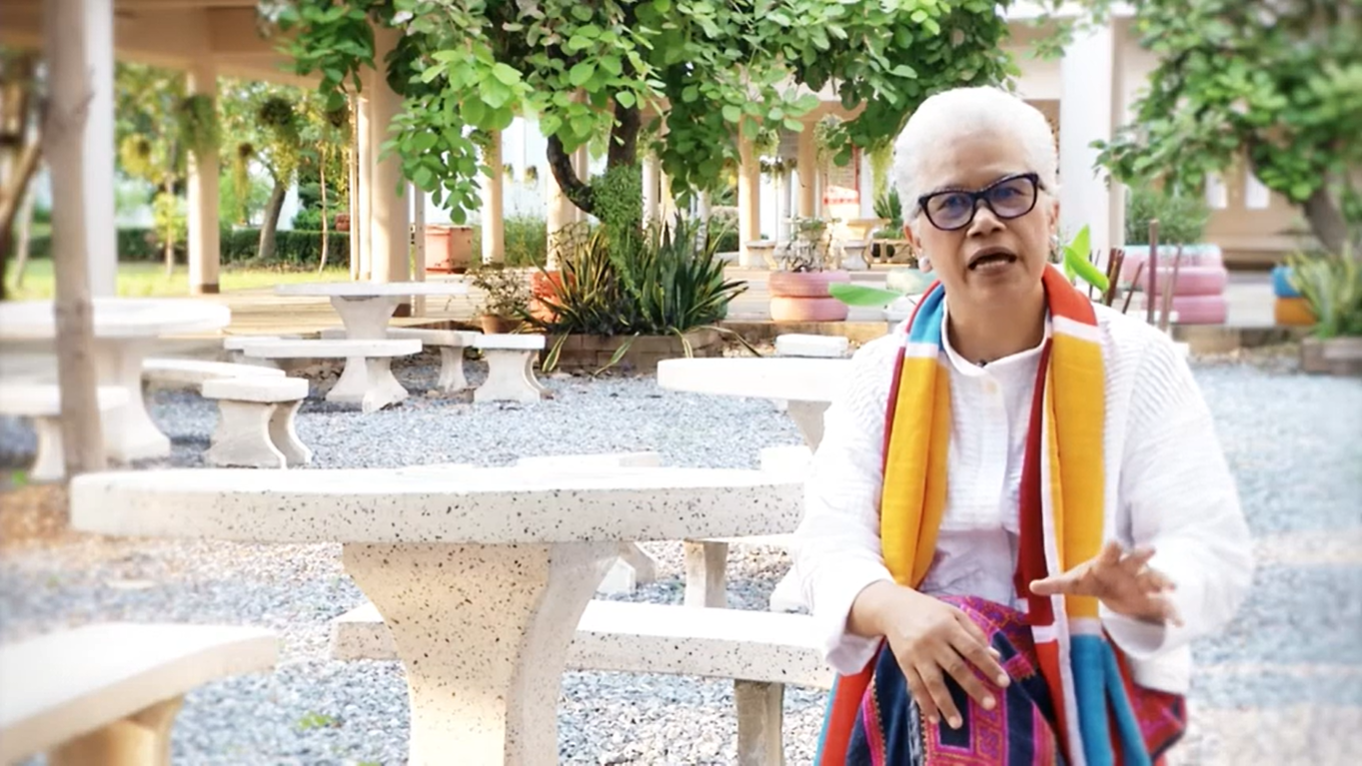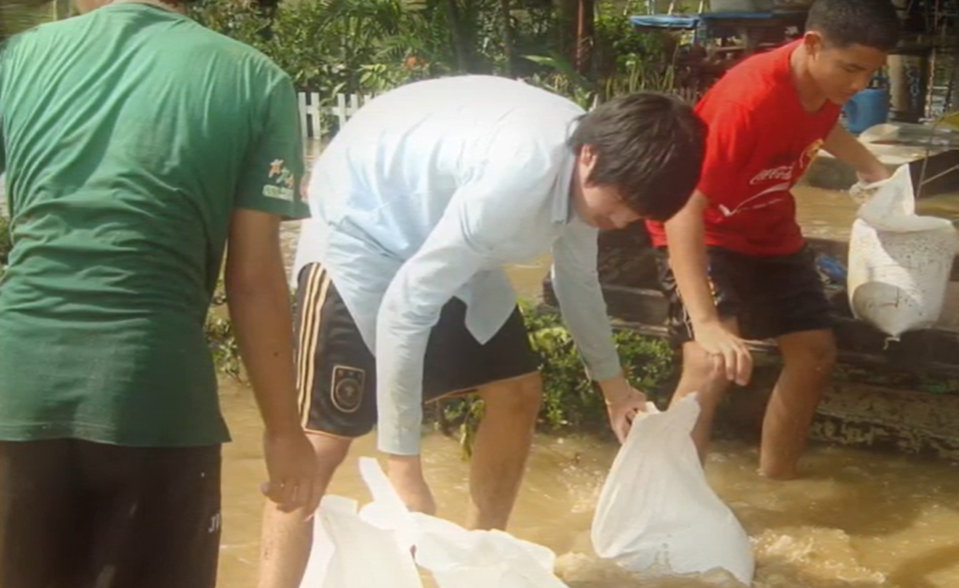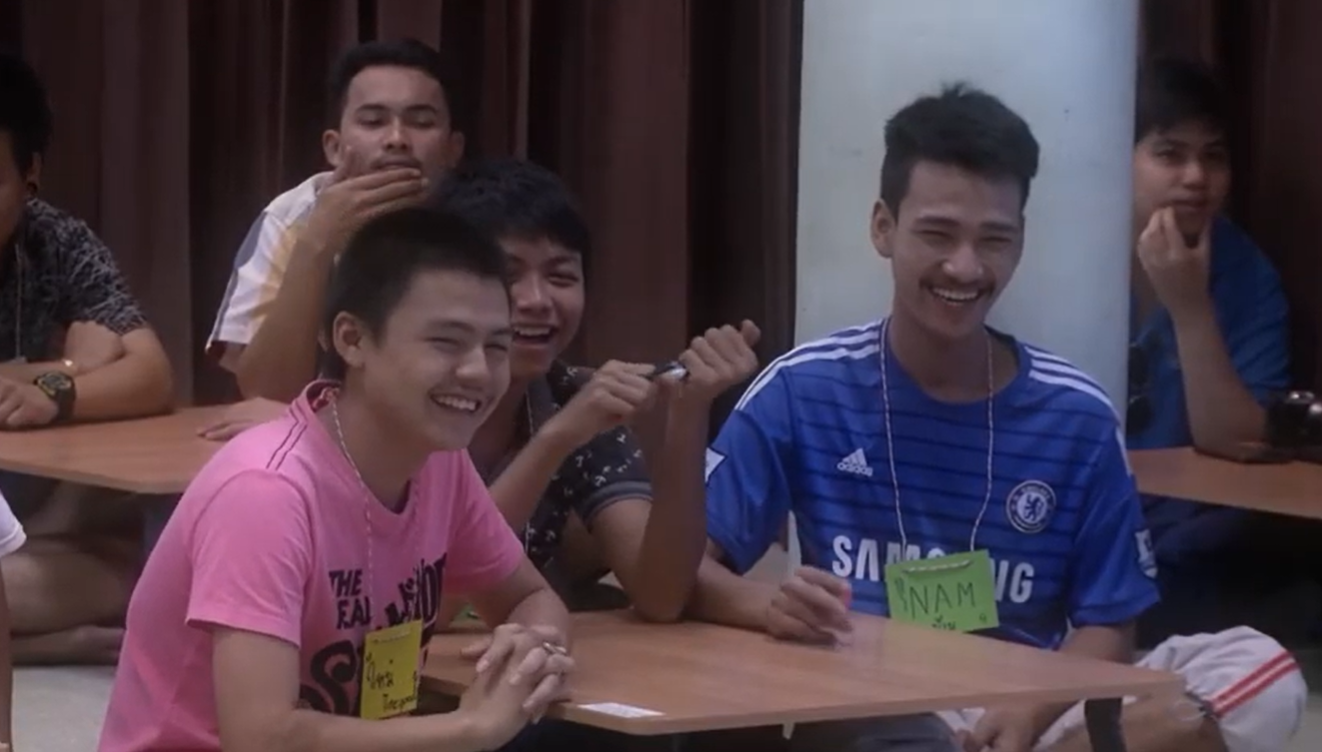What would be the harshest punishment?: My reflection on Ban Kanchanapisek trip
1 comment
Greetings to all kind members of the community. This will be my first post after my introduction to the platform. I have been thinking about a story to write, dwelling on what I had been thinking years ago, and finally dug a good story and reflective thoughts to share with all.
Sometimes we headed the wrong way
Have anyone been thinking about wrongdoings that one can only wish to go back and correct or avoid? Some of us move on easily, some of us move on only to come back to the memory of it, and some cannot easily get over it. Everyone makes mistakes, be it a trivial matter or a great crime. It takes the environment and time to acknowledge it.
We would sometimes cringe at night over awkward things we did during childhood. We would sometimes curse ourselves at night over some harms and offenses committed during childhood as well—if we had done it. "If I only had known it, I would not have done it", we often think of this phrase during those nights. But we never know enough to be perfect. Especially in childhood, would we be ourselves today if we were to erase what was done in the past? Of course, if there were any second parties, the actor must only accept the responsibility to compensate for what has been done. It is debatable on what crime can be justified or not, but shouldn't the healing process for both parties be factored in? After all, no one would want to see themselves shaded by society.
Into the story: my college trip to Ban Kanchanapisek
Three years ago, one of the courses I took in my freshmen year was Social Innovation Project. The course aimed to provide frameworks and inspiration for students to study existing social innovation and develop a prototype of their own. Part of the syllabus was to let students speak to the mind of social innovators, so my classmates and I had an opportunity to visit Ban Kanchapisek—a little-known but great modification of the punishment system for children.

Ban Kanchanapisek is a correctional house for children who had violated the law and are subjected to confinement. "Ban" in Thai means house and Kanchanapisek is the name of the main road near Bangkok Suburb. Ban Kanchanapisek is different from jails as they only let children—who committed crimes such as assault, carrying weapons, drug abuse, and robbery—complete their sentence in a more opportune environment. The mentioned crimes are commonly witnessed especially in young Thai adults with stigmatized beliefs and a false sense of pride; doing drugs is bravery, carrying weapons gives power and authority in a gang, and attacking rival school students means conserving the school's identity.
During the time that my class was about to visit, there were a few articles that highlighted Ban Kanchanapisek as the model for treating juvenile criminals. One of the important notes my friends and I were told before going to the correctional house is; relax, try not to feel scared. The children there are just like you, but with deprivation of light and guidance. In my thoughts, I could not help but stay alert and be anxious as I was about to be in the same room as criminals. The thought burned into my head was THEY COMMITTED CRIMES. But I was open enough to let myself observe every moment I was at Ban Kanchanapisek.
Underwhelming, yet surprising, the children there were welcoming. They brought cups of drinking water to every visitor, and go back to sit in a humble manner. The class was then welcomed by Ticha Na Nakorn (Pa Mol)—the director of Bang Kanchanapisek. The kind and loving women narrated the founding story, the struggle to convince the public sector to be the first private-run correctional house. She labeled the children as lost children, whom she wishes to take responsibility in guiding, as long as they are willing to see a clearer path. She highlighted that children are different than adults, as they have opportunities to learn and change. But jail confinement deprives this very need, and we can see, some criminals were released from jails only to do the same, or even worse.

In the house entrance, I saw walls with posters showcasing children's writing on self-reflection and goals after completing their sentences. Walking around, I saw children grouping up to make friends and smile together. In different rooms, I see clean and tidy folded bedsheets and spotless furniture. Gazed into more rooms, I saw children cleaning, reading, writing, and basically behaving. There were 139 children at the time, 30 of them were showing up to guide my class, and others were doing respective tasks. During a break, I had a chance to listen to one child's story, as I did not think most of them were comfortable speaking.


The young boy abused illegal drugs with his friends. Only him was arrested, as his friends just left him and survival on their own. He was sentenced to 6 months of confinement. At first, he was angry, frustrated, and disappointed. He tearingly explained his first 2 months in the jail, where he was locked up with fellow criminals, who would harm him out of random emotion. He would be scolded for giving his food quota to bigger jail mates. He would be overwhelmed with loneliness and grave silence in an extended period of being placed in an individual cell. After 2 months, he was asked if he wanted to 'change place', which he chose to.
Overwhelmed with survival instinct, damaged by jail experience, and infuriated by friends, he went to Ban Kanchanapisek completely on guard and wanted to escape. Pa Mol tried to comprise with a kind approach, asked the boy if he wanted to change for the better. The boy teared up, in his head a glimpse of his parents. He continued the remaining confinement period at Ban Kanchanapisek. There, he had more room to breathe. He was asked what he wanted to do, and he had the opportunity to slowly learn to do. If one wanted to learn computer graphics, there are computers with good internet. If one wanted to learn public speaking, there are fellow children as listeners. It does not cover most of the paths, but at least there are some.
Pa Mol would teach philosophy, morality, and remind how good to be good in society. The boy, still in confinement, was only confined in a learning environment. A healthy space to refresh. Ultimately, the boy and any children at the house, if they continue showing the progress of transforming, will be given the one day opportunity to visit their own homes every month. The deal was made between the parents and Pa Mol.
The children's transformation could partly be assessed by the writing and speaking exercise all children were given to do. Most of the writings were about how regretful the children were to have fallen low and commit a crime, and about how grateful they were for Ban Kanchanapisek. They did not appreciate Ban Kanchanapisek for a less harsh environment than the jail, as the house also serves as confinement. They appreciate Ban Kanchanapisek for the opportunity to see the light. Although society may still label them as criminals, they are lucky to be given the ability to redeem, successfully or not.

My reflection: are they justifiably punished?
After the trip, my friends and I were headed back to the campus. The professor asked if anyone wanted to share their thoughts on the trip's experience. With great empathy and overthinking, I raised my hand. If we sometimes cringe at ourselves over mistakes, would not the children grow to hate for themselves in the dark? What sort of punishment is appropriate for each crime? If the children were enlightened and become aware of their false doing, does it mean they are already welcomed by society? No, society is the third party with their own judgment, let alone the second party. If the enlightened children acknowledge their crime, their crime with a stick as part of them, and they can never erase it from their lives—they had done it, and they will forever be haunted by their crime. Their background is tainted forever, and even if society forgives them, they can never erase this stain on their identity. There is no way they can dismiss it, and this would be the harshest punishment they pose on themselves.
By no means we should pressure the victim of crimes to empathize with juvenile criminals. As much as I agree with Pa Mol, this is about the perspective we see on some young children who went the wrong path, and we can empathize with those who are willing to understand what was done and what they can do in their future. I see them as criminals, but it is clearer that they are children who lost their way.
Comments